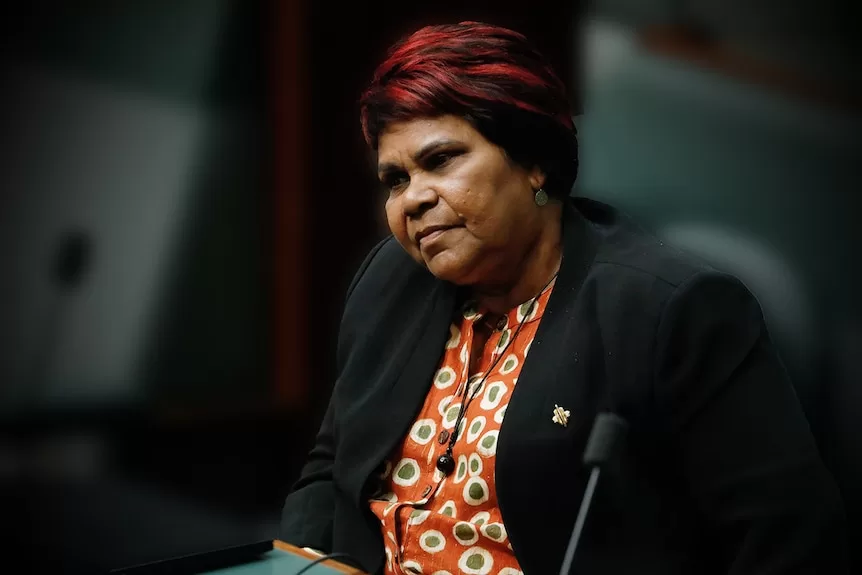-
In short: Discussions to buy back the liquor licences of three IGA stores with attached bottle shops in Alice Springs have stalled.
-
Alcohol has long been a factor in soaring levels of crime and violence in the town.
-
What’s next? The peak body representing licensed venues says the issues extend beyond just the sale and consumption of alcohol.
As a youth curfew in Alice Springs draws to a close, there are calls for more action to reduce the consumption of alcohol in Central Australia.
The curfew was imposed after a series of violent incidents on March 27, including an attack on an Alice Springs pub, and a brawl police said involved up to 150 people.
Loading…
Under the curfew, anyone under the age of 18 is not allowed to be within the declared “high risk” area of the Alice Springs CBD, stretching about four kilometres from one end of the town to another, between 6pm and 6am.
For decades, alcohol-fuelled violence and crime has blighted the region, with efforts to turn the tide on its scourge proving an uphill battle.
With a population of around 25,000 people, Alice Springs has nine take-away bottle shops and about a dozen licensed bars and pubs.
While experts acknowledge that reducing the volume of alcohol sold won’t be a panacea for the region, it could go a long way to reducing the soaring rates of alcohol-related harm.
In March 2023, the NT government opened expressions of interest for the voluntary buy-back of grocery store liquor licences but has so far been unsuccessful striking a deal with Alice Springs operators.
Marion Scrymgour, the member for Lingiari, has proposed the federal government chip in to help cover the cost of the licences and reduce the number of bottle shops.
“There are private liquor outlets that would readily walk away from the sale of alcohol from these stores,” she said.
“If we want to lessen the impact and the health harm that alcohol is doing to Aboriginal people, then this is a good process that we can adopt with the Northern Territory government.”
Lhere Artepe Enterprises, a charity that owns three IGAs with attached bottle shops in Alice Springs, said buy-back negotiations hit a standstill after receiving an offer it claims was “lacking goodwill”.
Drug and Alcohol Services Australia (DASA) chief executive Eloise Page said a reduction in bottle shops could lighten the load of police and security officers by limiting the number of hotspots for antisocial behaviour in town.
But Ms Page acknowledged that for alcohol reforms to be effective, they must have a broader scope than just limiting access points for the sale of alcohol.
“We need to reduce demand, we need to reduce that need for people — they’re still going to want and need alcohol,” she said.
“It’s an addiction — it’s not just a choice. It’s a health concern.”
Hospitality chief says sector ‘has a role to play’
Alice Springs already has some of the toughest alcohol restrictions in the country, including take-away alcohol-free days on Mondays and Tuesdays, and customers limited to one purchase per day.
In July 2022, legislation banning residents living in Aboriginal town camps and remote communities from purchasing take-away alcohol lapsed but were reimposed eight months later following a dramatic spike in crime and violence.
Chief Minister Eva Lawler this week said Alice Springs residents had raised their ongoing concerns over the harm caused by excessive alcohol consumption.
She said she would welcome the federal government offering financial assistance to buy back the liquor licences, which would also alleviate challenges staffing the town’s bottle shops with police auxiliary liquor inspectors (PALIs).
“I am open to the federal government putting money into the territory every single day of the week,” she said.
But she also called on licensed venues in Alice Springs to “be part of the solution”.
Hospitality NT chief executive Alex Bruce said the issues facing the region extend beyond licensed venues and the sale of alcohol.
“As responsible industry, we understand we have a role to play,” he said.
“But the curfew came out of a riot [involving] youths on a day where the bottle shops were closed.”
Mr Bruce acknowledged the supply of alcohol in Alice Springs deserves to be scrutinised.
“We’re part of the problem, but we’re getting a bit sick of being labelled ‘the problem’,” he said.
“There’s clearly a lot of other things that go to the social destruction that’s going on in and around Central Australia.”
Businesses consider takeaway alcohol licence buy-back
Lhere Artepe Enterprises Chair Peter Holden told the ABC an independent valuation was undertaken of its three liquor licences.
He said the company would only sell them for their “proper value”.
“We’ve worked very hard to sell a legal product in the most responsible way we can,” he said.
“The government had had two responses from us since its last offer. Now, the ball’s in their court.”
Loading…
